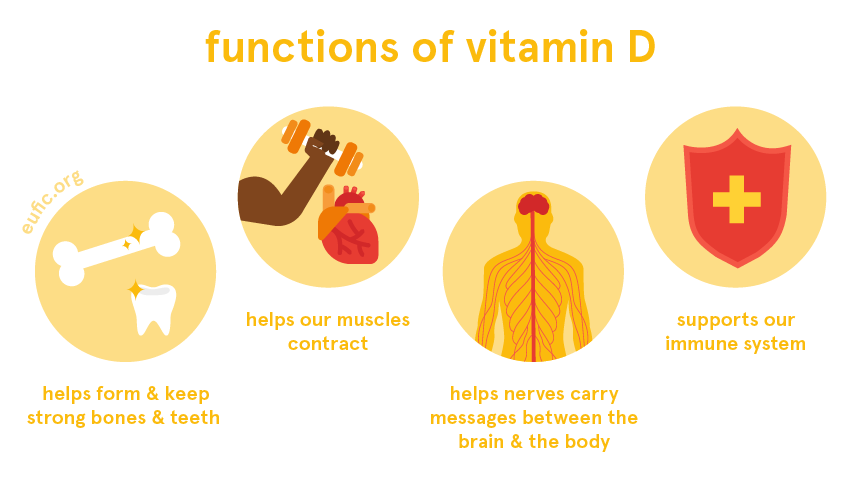Maintaining bone health and managing rheumatoid arthritis are two essential aspects of overall well-being. One key factor in promoting healthy bones and supporting the management of rheumatoid arthritis is ensuring an adequate intake of vitamin D. This essential nutrient plays a crucial role in calcium absorption and immune modulation, making it vital for bone health and the management of rheumatoid arthritis. While sunlight is a primary source of vitamin D, certain foods can also provide this nutrient. In this article, we will explore five helpful pieces of information about foods rich in vitamin D that can promote bone health and support the management of rheumatoid arthritis.
1, Importance of Vitamin D.
Vitamin D is indeed crucial for maintaining healthy bones and plays a significant role in various other aspects of our health. Here are some important points about the importance of vitamin D:
Bone Health: Vitamin D helps regulate calcium and phosphorus levels in the body, which are essential for the development and maintenance of strong bones. It aids in the absorption of calcium from the intestines, ensuring that an adequate amount of calcium is available for bone mineralization.
Skeletal Development: In children, vitamin D is necessary for proper growth and development of bones. Insufficient vitamin D levels can lead to rickets, a condition characterized by weak and brittle bones.
Muscle Function: Vitamin D is also involved in maintaining healthy muscle function. It helps improve muscle strength and coordination, reducing the risk of falls and fractures, especially in older adults.
Immune System Regulation: Vitamin D plays a role in modulating the immune system. It helps regulate immune cell function and plays a vital role in the body's defense against infections. Adequate vitamin D levels have been associated with a lower risk of developing autoimmune diseases like rheumatoid arthritis, multiple sclerosis, and type 1 diabetes.
Cancer Prevention: There is evidence suggesting that sufficient vitamin D levels may help reduce the risk of certain types of cancer, including colorectal, breast, and prostate cancer. However, more research is needed to fully understand the relationship between vitamin D and cancer prevention.
Mood and Mental Health: Some studies have found a link between vitamin D deficiency and an increased risk of mood disorders such as depression and seasonal affective disorder (SAD). While the exact mechanisms are still being studied, maintaining optimal vitamin D levels may contribute to better overall mental health.
Heart Health: Research suggests that vitamin D may have a protective effect on the cardiovascular system. It may help lower blood pressure, reduce the risk of heart disease, and improve overall cardiovascular health.
It's important to note that while vitamin D can be obtained through sun exposure, it can also be acquired from dietary sources such as fatty fish (e.g., salmon, mackerel), fortified dairy products, eggs, and certain mushrooms. In cases of deficiency or limited sun exposure, vitamin D supplements may be recommended under the guidance of a healthcare professional. However, it's always best to consult with a healthcare provider to determine your specific vitamin D needs and the best way to maintain optimal levels.
2, Natural Food Sources.
While sunlight is indeed the primary source of vitamin D, there are several natural food sources that can provide this essential nutrient. Fatty fish, such as salmon, mackerel, and sardines, are excellent sources of vitamin D. These fish not only offer vitamin D but also contain omega-3 fatty acids, which have various health benefits, including anti-inflammatory properties.
Here are some additional natural food sources of vitamin D:
Cod Liver Oil: Cod liver oil is one of the richest dietary sources of vitamin D. It is commonly available as a supplement and can provide a substantial amount of vitamin D.
Egg Yolks: Egg yolks contain a small amount of vitamin D. While the amount may vary depending on the chicken's diet, eggs can still contribute to your daily vitamin D intake.
Mushrooms: Some types of mushrooms, such as shiitake and maitake mushrooms, can synthesize vitamin D when exposed to sunlight. These mushrooms are a great plant-based source of vitamin D for individuals following vegetarian or vegan diets.
Fortified Foods: Certain food products are fortified with vitamin D to help increase its intake, especially in populations with limited sun exposure. Common examples include fortified dairy products (milk, yogurt, cheese), plant-based milk alternatives, breakfast cereals, and some orange juices.
It's worth noting that the vitamin D content in food can vary, and it may be challenging to obtain sufficient amounts through diet alone, particularly for individuals with limited sun exposure or specific dietary restrictions. In such cases, vitamin D supplements may be recommended to meet the recommended daily intake. As always, it's advisable to consult with a healthcare professional for personalized advice regarding your dietary needs and supplementation.
3, Fortified Foods.
Fortified foods are a convenient way to increase your vitamin D intake, especially if you have limited sun exposure or dietary restrictions. Many food manufacturers fortify common products with vitamin D to help people meet their daily requirements. Here are some examples of commonly fortified foods:
Milk and Dairy Products: Cow's milk is often fortified with vitamin D to enhance its nutritional value. This includes both whole milk and reduced-fat varieties like skim milk. In addition to regular milk, fortified dairy products such as yogurt, cheese, and butter may also be available.
Plant-Based Milk Alternatives: Many plant-based milk alternatives, such as soy milk, almond milk, and oat milk, are fortified with vitamin D. Be sure to check the labels to confirm the presence of added vitamin D.
Orange Juice: Some brands of orange juice are fortified with vitamin D, offering a citrusy source of this essential nutrient.
Breakfast Cereals: Certain breakfast cereals, particularly those marketed as "fortified" or "enriched," may contain added vitamin D. It's always a good idea to check the nutrition labels to identify cereals that provide vitamin D.
When purchasing fortified foods, it's essential to read the labels carefully to ensure they contain added vitamin D. The nutrient content and fortification levels may vary among different brands and products. The labels will indicate the specific amount of vitamin D added per serving, allowing you to make informed choices.
While fortified foods can be a valuable source of vitamin D, it's important to remember that they should complement a well-rounded diet rather than replace natural food sources. Additionally, if you have specific dietary needs or restrictions, consulting with a healthcare professional or a registered dietitian can provide personalized guidance on meeting your vitamin D requirements.
4, Egg Yolks.
Egg yolks are a natural food source of vitamin D, although they are not as high in vitamin D as fatty fish. Including egg yolks in your diet can contribute to your overall vitamin D intake. However, it's important to consume them in moderation due to their cholesterol content.
While egg yolks provide several essential nutrients, including vitamin D, they also contain cholesterol. The cholesterol content in eggs has led to some concerns in the past, particularly for individuals with certain health conditions or dietary restrictions. However, it's worth noting that dietary cholesterol has a relatively minor impact on blood cholesterol levels for most people. The American Heart Association and other health organizations now consider the cholesterol in eggs to have a limited effect on blood cholesterol levels in the majority of individuals.
If you have specific concerns about cholesterol or dietary restrictions, it's advisable to consult with a healthcare professional or a registered dietitian who can provide personalized advice based on your individual health needs.
Incorporating a balanced approach to your diet, which includes a variety of nutrient-rich foods, can help ensure you receive the necessary vitamins and minerals, including vitamin D, while maintaining overall heart health.
5, Supplements and Medical Advice.
While diet and sun exposure are important sources of vitamin D, some individuals may have difficulty meeting their requirements through these means alone. In such cases, vitamin D supplements can be a valuable option to ensure adequate intake. However, it's crucial to seek medical advice and consult with a healthcare professional before starting any supplementation regimen. Here's why:
Individual Needs: The appropriate dosage of vitamin D supplements can vary depending on factors such as age, sex, overall health, and existing medical conditions. A healthcare professional can assess your specific needs and determine the most suitable dosage for you.
Blood Test: A healthcare provider may recommend a blood test to measure your vitamin D levels before prescribing supplements. This test, known as a 25-hydroxyvitamin D test, helps determine if you have a deficiency and guides the healthcare professional in prescribing the appropriate dosage.
Safety and Interactions: Vitamin D supplements are generally considered safe when taken as directed. However, it's important to discuss any existing health conditions or medications you may be taking to ensure there are no potential interactions or contraindications.
Monitoring and Adjustments: Regular monitoring of your vitamin D levels is important when taking supplements to ensure that you achieve and maintain optimal levels. Your healthcare provider can help determine the frequency of follow-up tests and make adjustments to your dosage if needed.
Combined Approach: In some cases, a combination of increased sun exposure, dietary adjustments, and supplementation may be recommended to achieve optimal vitamin D levels. A healthcare professional can provide guidance on how to integrate these strategies effectively.
Remember, while vitamin D supplementation can be beneficial for those with insufficient levels, it's essential to do so under the guidance of a healthcare professional. They can provide personalized advice based on your specific needs and help monitor your progress to ensure optimal vitamin D status and overall health.
Incorporating vitamin D-rich foods into your diet can be a valuable strategy for promoting bone health and supporting the management of rheumatoid arthritis. Fatty fish like salmon, mackerel, and sardines, along with fortified foods like milk, orange juice, cereal, and yogurt, offer excellent sources of vitamin D. Additionally, egg yolks provide a moderate amount of this essential nutrient. However, it's important to remember that obtaining adequate vitamin D solely through diet can be challenging for some individuals. In such cases, vitamin D supplements, along with medical advice, may be necessary. By taking a comprehensive approach to bone health and rheumatoid arthritis management, including proper nutrition, regular exercise, and working closely with healthcare professionals, individuals can optimize their well-being and support their overall health.





Comments
Post a Comment